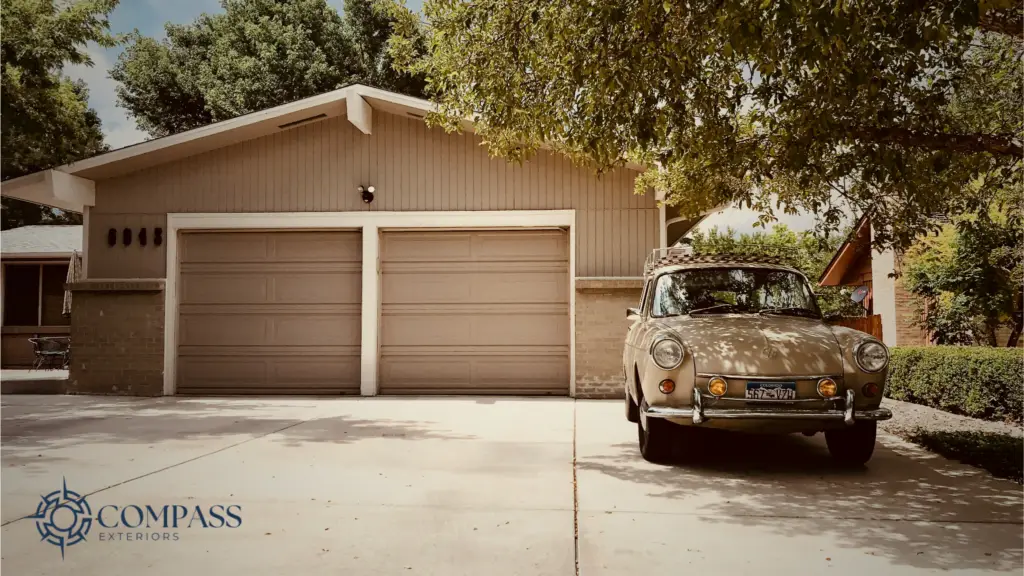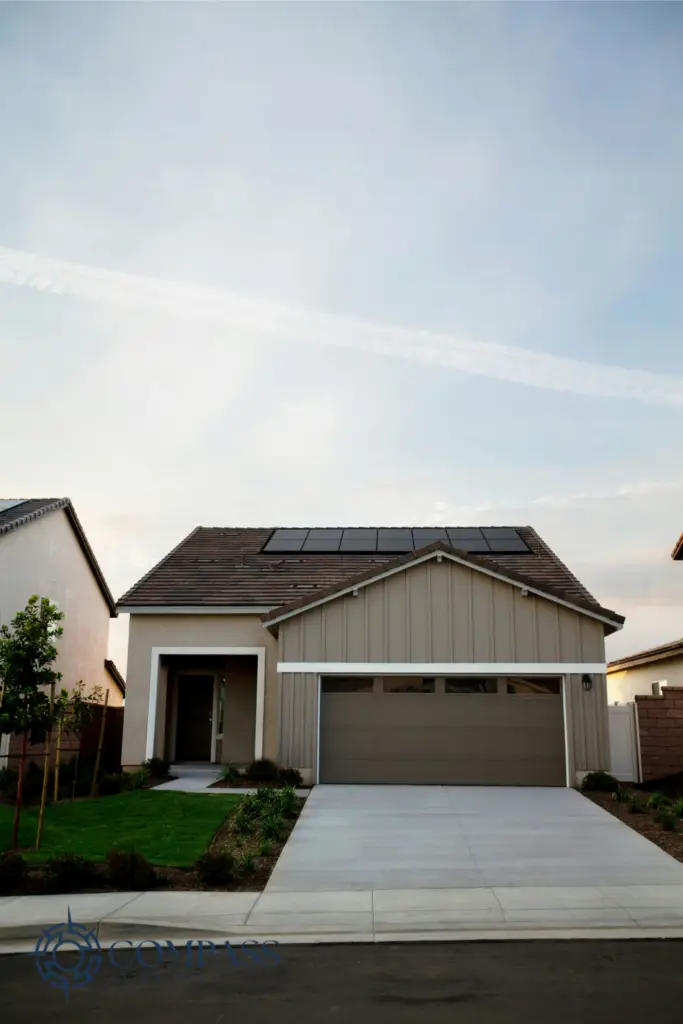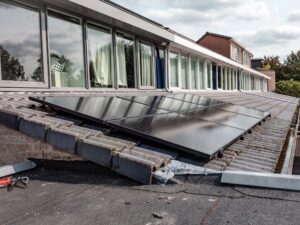Imagine this: After years of using your garage as a storage space for valuable items, you decide it’s time to declutter. As you sift through boxes, your heart sinks—everything is ruined by water damage. This scenario is all too common and often stems from a crucial oversight: the lack of proper garage ventilation. Condensation occurs when the hot, humid air inside the garage meets the cold surface of the roof, leading to persistent moisture that can damage not just stored items but also the garage structure itself. Venting your garage is essential, not just for the health of what’s stored inside, but for the safety and functionality of the space itself.
The Science of Garage Venting
Understanding the science behind garage venting starts with recognizing how condensation forms. In an unvented garage, warm, moist air rises and accumulates at the ceiling. When this humid air comes into contact with the cooler surface of the garage roof, particularly during colder months, it condenses into water droplets. This process is similar to the moisture buildup you might see on the outside of a cold glass on a hot day. Over time, these droplets can accumulate, dripping back down onto the surfaces below and creating an environment ripe for water damage and mold growth. Proper ventilation helps mitigate this risk by allowing continuous air flow, which equalizes indoor and outdoor temperatures, reduces humidity levels, and prevents the stagnation of moist air. Installing adequate venting systems ensures that this moist air is expelled from the garage, maintaining a dryer and healthier environment.
Key Reasons for Venting Your Garage

Proper garage ventilation is crucial for several reasons, each contributing to the safety, functionality, and preservation of your garage and home.
Temperature Control and Fire Risk Reduction
- Cooling Effects: Ventilation helps maintain a cooler garage environment, especially during hot weather. By allowing hot air to escape, vents prevent the buildup of excessive heat which can be particularly problematic when flammable materials, such as gasoline or oil, are stored.
- Reduced Fire Risk: Cooler temperatures reduce the volatility of flammable vapors, decreasing the likelihood of fire. A well-vented garage acts as a safety measure, protecting not only the stored items but also the home and its occupants.
Fume Ventilation
- Health and Safety: Garages often house vehicles, lawnmowers, and contain substances like gasoline, paints, and solvents, which can emit harmful fumes. Proper ventilation ensures these toxic fumes are expelled from the garage, safeguarding the health of individuals who spend time inside.
- Preventing Build-up: Without adequate venting, fumes from chemicals and exhaust can accumulate to dangerous levels, creating not only health risks but also the potential for explosive scenarios.
Mold Prevention
- Moisture Control: By reducing condensation, effective ventilation helps prevent the growth of mold and mildew, which thrive in moist, stagnant environments. This is crucial not only for protecting the structure of the garage but also for safeguarding stored items from mold damage.
- Air Quality: Reducing mold growth improves the overall air quality within the garage, creating a healthier environment for both storage and workspaces.
Incorporating adequate ventilation in garage designs or remodels is not just a good practice—it’s a critical measure for ensuring the space is safe, functional, and free from damaging elements such as extreme heat, hazardous fumes, and destructive mold growth.
Regulatory Aspects of Garage Venting

Understanding the regulatory requirements for garage ventilation is crucial for homeowners to ensure that their garage modifications meet local building codes and standards. These regulations are in place to protect not only the physical structure and contents of the garage but also the health and safety of its users.
Minnesota Garage Venting Regulations
- Code Requirements: In Minnesota, like in many other places, building codes specify minimum ventilation requirements for garages, especially those attached to homes. These regulations typically require that garages have both intake and exhaust vents to facilitate the movement of air.
- Purpose of Regulations: The main goal of these codes is to ensure that any harmful fumes from cars, chemicals, or equipment do not seep into living areas, which could pose health risks. Additionally, proper ventilation helps in maintaining structural integrity by preventing moisture accumulation that can lead to mold growth and wood rot.
Compliance and Inspection
- Building Inspections: When modifying or installing garage ventilation, inspections may be required to ensure compliance with local codes. It’s important for homeowners to work with qualified contractors who understand the specifics of local regulations to avoid any potential issues.
- Permitting Process: In many cases, changes to garage structures, such as adding or enlarging vents, will require permits. The permitting process ensures that all modifications are documented and inspected, which helps in maintaining safe building standards.
Working with Experts
- Expert Guidance: Contractors like Compass Exteriors have the expertise to navigate these regulatory waters efficiently. They can provide valuable guidance on how to achieve compliance while still meeting the homeowner’s needs and preferences. Their experience ensures that all aspects of garage venting—from design to installation—are handled professionally, adhering to all local building codes.
Understanding and adhering to these regulations is not just a legal obligation but a necessary step to ensure the safety, functionality, and durability of your garage space. Working with seasoned professionals like Compass Exteriors can simplify this process, ensuring that your garage meets all required standards without compromising on design or functionality.
Practical Tips for Implementing Effective Garage Venting
Ensuring your garage is well-ventilated not only complies with regulations but also enhances its usability and safety. Here are some practical tips to achieve effective garage venting:
Choosing the Right Venting System
- Evaluate Needs: Assess the primary uses of your garage to determine the appropriate type of venting system. For garages used to store vehicles or as workshops, an active ventilation system may be necessary to efficiently remove fumes and heat.
- System Options: Consider installing exhaust fans that can be manually controlled or tied to a thermostat or humidity sensor to operate automatically. Passive vents are suitable for less intensive use, where natural airflow can suffice.
Installation Considerations
- Proper Placement: Ensure vents are strategically placed to foster effective airflow. Intake vents should be installed low on the walls to bring in fresh air, while exhaust vents should be higher, typically near the roof, to allow hot air and fumes to escape.
- Professional Installation: To maximize the effectiveness of your venting system, consider hiring professionals. Experienced contractors like Compass Exteriors understand the nuances of optimal vent placement and can ensure that the installation meets both efficiency standards and building codes.
Maintaining Your Venting System
- Regular Checks: Periodically inspect and maintain your venting system. Check for blockages, ensure vents are clean and clear, and confirm that fans and other mechanical elements are functioning properly.
- Upgrade Opportunities: As technology advances, consider upgrading to more efficient systems or smart home integrated solutions that improve the functionality and control of your garage’s environment.
Implementing these practical tips can significantly improve the air quality and safety of your garage. With proper planning and professional assistance from experts like Compass Exteriors, you can ensure that your garage ventilation is effective and compliant with all relevant standards and regulations.
Why Choose Compass Exteriors for Your Garage Venting Needs
Choosing the right partner for your garage venting needs is crucial, and Compass Exteriors stands out as your ideal choice. With extensive experience in garage modifications and a deep understanding of local building codes, we ensure that your venting system is not only effective but also compliant with all regulations. Our commitment to quality and customer satisfaction means we prioritize your safety and the functionality of your space. Let Compass Exteriors help you enhance your garage with a professional venting solution that protects both your health and your home investments. Contact us today to ensure your garage is as safe and comfortable as the rest of your home.











